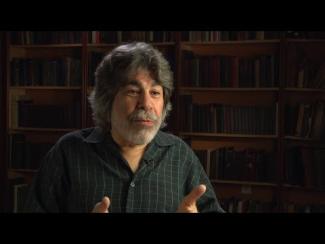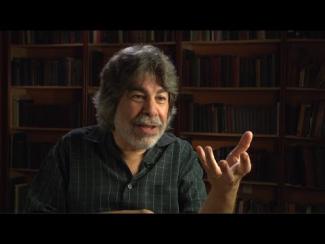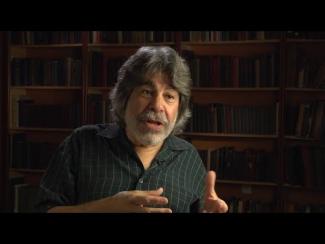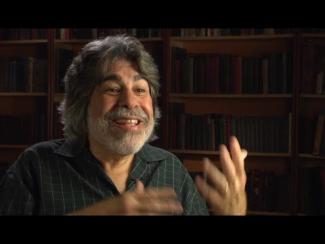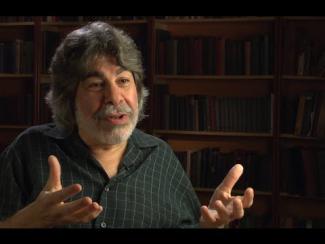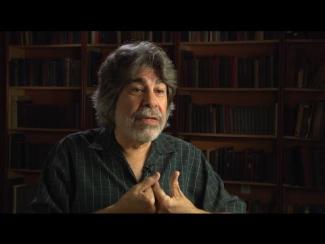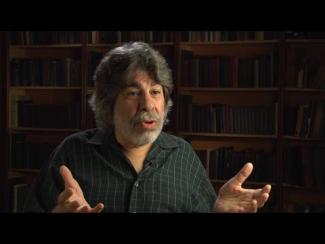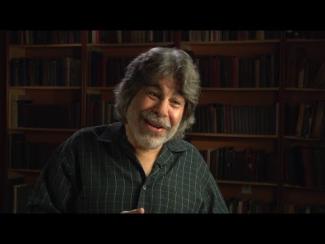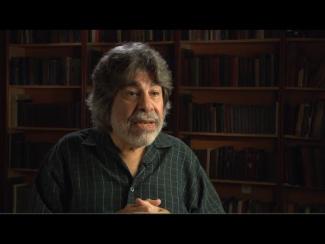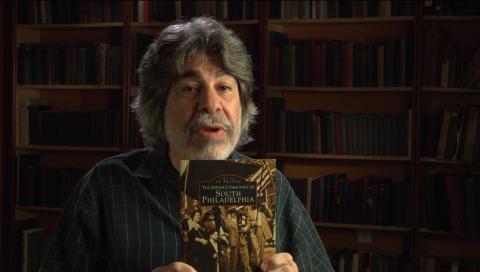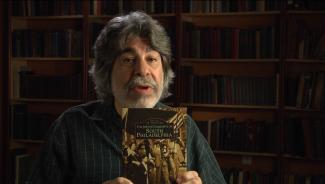The Yiddish Book Center's
Wexler Oral History Project
A growing collection of in-depth interviews with people of all ages and backgrounds, whose stories about the legacy and changing nature of Yiddish language and culture offer a rich and complex chronicle of Jewish identity.
David Berg's Oral History
David Berg, a developmental psychologist and South Philadelphia native, was interviewed by Mark Gerstein on August 20, 2013 at the Yiddish Book Center in Amherst, Massachusetts. David recounts the history of his childhood neighborhood in the 1950s and ‘60s, which was racially integrated and multi-ethnic and included a large and vibrant Jewish population. There were 100 shuls in small row houses frequented by folks from 100 different shtetls (small towns in Eastern Europe with a Jewish community). David is still actively involved in The Little Shul, the tiny Orthodox shul that he attended as a child. David reminisces about his grandfather, who left Romania in 1910 to come to America in steerage on the Castle Garden ship. He became a proud American who appreciated the freedom from fear that he experienced in this country and, although he worked as a pants presser, thought that he had achieved the so-called "American Dream." David talks about social construction theory and how ethnic identity is transmitted from one generation to the next. He did not learn much Yiddish growing up and found a conversational Yiddish class that he joined in his thirties disappointing. The next generation of South Philadelphia Jews moved to the suburbs and it became more difficult to keep the small shuls going; The Little Shul is the last one left. David tells a story about a non-Jewish longshoreman who grew up as the shabes-goy [non-Jew engaged to perform chores forbidden to Jews on Shabbos] and eventually made a documentary film called "Echoes of a Ghost Minyan" to tell this story. Although David now lives in Chestnut Hill, he has become very involved in supporting and advising The Little Shul in his old neighborhood. They now have programs, concerts, movies and a speaker series. One well-attended highlight was a presentation on the champion South Philadelphia Hebrew Association's basketball team. David ends the interview by talking about how acknowledgement of the importance of his ethnic background has made him become the person that he is today.
This interview was conducted in English.
David Berg was born in Philadelphia, Pennsylvania in 1948.

